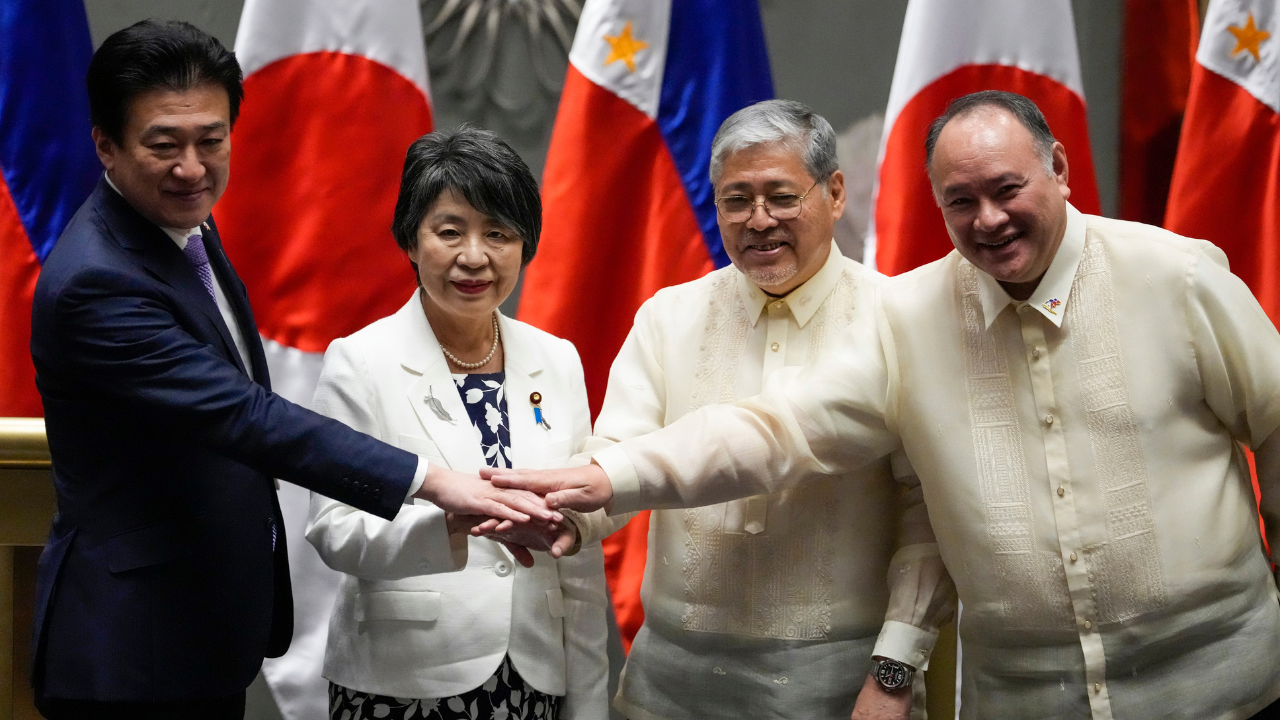If everything had gone to plan, Britain’s opposition Labour Party, which is riding high in opinion polls, would be confident of sweeping to victory on Thursday in a special election (known as a by-election in Britain) for the parliamentary district of Rochdale, north of Manchester.
Instead, the contest has become a source of acute embarrassment to the party, and whoever comes out on top when results are announced early Friday morning won’t represent Labour.
Earlier this month the party had to disown its candidate over antisemitic remarks he made, but it was too late to replace him on the ballot. In the aftermath of that debacle the election in Rochdale has become emblematic of the anger that has swept through British politics over the war in Gaza.
With a general election looming, internal divisions over the conflict in the Middle East have caused tensions within both the Labour Party and the governing Conservatives.
And, worse for Labour’s leader, Keir Starmer, the favorite to win in Rochdale is George Galloway, according to oddsmakers. He is a veteran left-wing firebrand who was kicked out of the Labour Party more than two decades ago, and would relish wreaking his revenge in Rochdale.
What on earth happened to Labour in Rochdale?
Thursday’s election was called to replace Tony Lloyd, a respected Labour lawmaker who had represented the district since 2017 but who died of blood cancer earlier this year.
To succeed him, Labour chose Azhar Ali as the party’s candidate, but then a recording emerged revealing that he had claimed that Israel “allowed” Hamas to go ahead with the Oct. 7 attacks as a pretext to invade Gaza. (Mr. Ali later issued a statement saying he apologized “unreservedly to the Jewish community for my comments which were deeply offensive, ignorant, and false.”)
The episode was a setback for Mr. Starmer, who has tried to rid Labour of the antisemitism that infected the far-left of the party under his predecessor, Jeremy Corbyn. After some initial prevarication, Mr. Ali was removed from the Labour ticket.
But by the time Mr. Starmer acted against Mr. Ali, it was too late to replace him. In fact, his name is still on the ballot, although, if he wins the seat, Mr. Ali would not represent Labour in Parliament (he would sit as an independent, instead).
The result? A mess. In a district it once assumed it would win, Labour isn’t even in the race.
Rochdale’s next lawmaker could be a contentious figure.
There may be no formal Labour candidate in the race but, along with Mr. Ali, two former Labour lawmakers are running in a region whose proud history has been marred recently by child exploitation scandals, poverty and deprivation.
One candidate is Simon Danczuk, who won Rochdale for Labour in the 2010 and 2015 general elections. He was suspended by the Labour Party in 2015 for sending explicit messages to a 17-year-old girl.
He apologized at the time for “inappropriate” behavior, saying he had been “stupid,” but he now dismisses the episode as “tabloid nonsense.” This time he is running as a candidate for Reform U.K., the hard-right party that is a successor to the Brexit Party, which was once led by Nigel Farage, who campaigned for Britain to quit the European Union.
The other candidate is Mr. Galloway, the former Labour lawmaker, who is known for his fierce political rhetoric — and for the trademark fedora hat he likes to wear. The founder of the far-left Workers Party of Britain, Mr. Galloway was forced out of the Labour Party in 2003 over his criticism of the Iraq war.
At the time he described Tony Blair, then Britain’s prime minister, and George W. Bush, then the U.S. president, as “wolves,” and urged British troops to ignore military orders that he called illegal. Later, Mr. Galloway won parliamentary seats in 2005 in Bethnal Green in east London, and in 2012 in Bradford West, for the Respect Party. In 2006, he appeared on Celebrity Big Brother in Britain, where at one point he surprised viewers by role-playing as a cat and licking another contestant’s hands.
If George Galloway wins, he will be a thorn in Labour’s side in Parliament.
In the campaign in Rochdale, Mr. Galloway has appealed directly to the district’s Muslim population, who make up around 30 percent of the electorate, and many of whom are angry about the war in Gaza. He has been outspoken in his criticism of Mr. Starmer, who is described as a “top supporter of Israel” in one of Mr. Galloway’s election leaflets. “Imagine — the people of Rochdale coming together to topple the hated Labour leader,” it adds.
That prospect may be fanciful but, if elected, Mr. Galloway would likely do his best to be a thorn in Labour’s side and exploit internal tensions over the Middle East.
The one bright spot for Mr. Starmer is that with a general election expected later this year, whoever wins in Rochdale faces another battle for re-election soon if the victor wants to stay a lawmaker for more than a few months. And next time, that candidate will almost certainly have to run against a Labour candidate who many analysts will expect to win.






